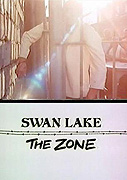
Kritiken (1)
Paradoxically, one of the main characters of the so-called poetic film, Jurij Iljenko, made a film about rust, decaying water, death, and false hope, where the hints of poetry end up sarcastically trampled as a false illusion. It was the late 80s and early 90s when the USSR was experiencing not only glasnost, which led to the creation of this totally disillusioning film (one of many...), but also perestroika, which turned into no less than a total economic and political disaster. Like countless other perestroika films, this one offers only a dystopia, a land on the verge of human and natural catastrophe, where all human ties break apart and only the laws of violence and blunt power survive in the ruling anarchy. This anarchy leads nowhere and wants nothing - it just is and there is no way to escape it (the main character hides on a symbolic bridge between the zone and the outside world). The metaphor of the "escaped" prisoner who climbs into the very core of the long-empty Soviet reality in the form of a tin sickle and hammer and observes the manifestations of this reality from there, is perfect in terms of the script. When the inscription on the prison gate changes from "You cannot live in society and be free from society" to “cannot,” "live," "free," we should not read it literally but consider the original inscription as a whole. The film's authors are actually attacking the entire society of that time and the entire system of mutual relations, where only anonymity, egoism, and corruption reign, and where the only hope lies in the personal and unique actions of a few characters. Hence, another paradox - a collectivist society, from which alienation was to be eradicated, created a film about total alienation, where true life is represented only by the individual gestures of isolated individuals (such as a woman living on the outskirts in an abandoned railway building, etc.). For me, it's just a pity (but this is also a common feature of these films) that there were hints of Christian mythology in connection with the main character, although an interpretation in this spirit is certainly not the only possible one.
()